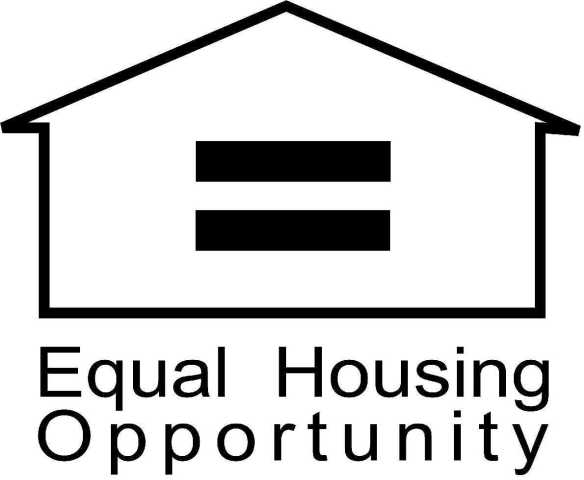A recent announcement from the “Know Your Options” website (sponsored by Fannie Mae) highlights the Home Affordable Refinance Program, (HARP) as an option for homeowners who are struggling to pay their mortgages.
The announcement includes the example of a retired Air Force officer who bought a home in 2007 in Sacramento, but who was reassigned to the East Coast. Unable to sell his home in a sluggish market, the homeowner found a renter, but was still losing about $1,000 a month.
While his original mortgage company wouldn’t refinance because he owed more than the house was worth (known as being “upside down”), he also spoke with a lender who offers the HARP loan, and was able to refinance his mortgage (at a rate that was almost 3% lower), saving about $760 a month.
The release explains that over 400,000 people obtained HARP loans during the first six months of 2012, making up about a third of the 1.5 million homeowners who have used HARP since the program began.
The loan needs to be owned by Fannie Mae or Freddie Mac to qualify for a refinance. You can see if they own your loan using these two websites:
To read the original announcement, visit: “How Much Could HARP Save You?”
You may also find our earlier post about the differences between a modification and a refinance helpful:
Refinance vs. Modification: What are the differences?
Related articles
- HARP gets 2-year extension (bankrate.com)
Foreclosure Help is a program funded by the city of San Jose through a HUD Community Development Block Grant and the city of Sunnyvale, and we can directly assist homeowners and tenants in San Jose and Sunnyvale who are facing foreclosure. However, we are unable to assist homeowners/former homeowners in other cities and states. If you need housing counseling, we suggest using the interactive map on HUD’s website.
If you are a homeowner living in San Jose or Sunnyvale and are struggling with your mortgage, please contact ForeclosureHelpSCC, a program funded by the City of San Jose through a HUD Community Development Block Grant and the City of Sunnyvale at (408)-293-6000 or visit us: www.foreclosurehelpscc.org
Our housing counselors can help you evaluate your options, learn more about federal and state programs that may help you with your mortgage issues, and will help you create a plan forward.
Please note: All content included in the ForeclosureHelpSCC blog is provided for information only and should NOT be considered legal or tax advice. If you have any questions, please feel free to contact us on our hotline: (408)-293-6000, or visit our website: www.foreclosurehelpscc.org or send us an email: help@foreclosurehelpscc.org.
Si usted es dueño de una casa en San José o en Sunnyvale y están luchando con su hipoteca, por favor póngase en contacto con ForeclosureHelpSCC, un programa financiado por la ciudad de San José y la ciudad de Sunnyvale, al (408) -293- 6000, o visite nuestro sitio: www.foreclosurehelpscc.org.Nuestros consejeros puede ayudarle a evaluar sus opciones, aprender más acerca de los programas federales y estatales que pueden ayudarle con sus problemas de hipoteca, y le ayudará a crear un plan para seguir.
Por favor, tenga en cuenta: Todos los contenidos incluidos en el blog ForeclosureHelpSCC se proporciona únicamente a título informativo y no debe ser considerada como consejo legal o fiscal. Si usted tiene alguna pregunta, por favor no dude en contactarnos a nuestra línea directa: (408) -293-6000, o visite nuestro sitio:www.foreclosurehelpscc.org o envíenos un correo electrónico: help@foreclosurehelpscc.org.
Nếu bạn là một sinh hoạt chủ sở hữu nhà ở San Jose hoặc Sunnyvale và đang đấu tranh với nợ nhà, xin vui lòng liên ForeclosureHelpSCC, một chương trình được tài trợ bởi thành phố San Jose và thành phố của Sunnyvale ở (408) -293-6000 hoặc truy cập trang web của chúng tôi: www.foreclosurehelpscc.org.
Nhân viên tư vấn của chúng tôi đã được HUD chấp thuận có thể giúp bạn đánh giá các lựa chọn của bạn, tìm hiểu thêm về các chương trình của liên bang và tiểu bang có thể giúp bạn với các vấn đề thế chấp của bạn, và sẽ giúp bạn tạo ra một kế hoạch phía trước.Xin lưu ý: Tất cả các nội dung trên Blog ForeclosureHelpSCC được cung cấp thông tin duy nhất và không nên coi là hợp pháp hoặc tư vấn thuế. Nếu bạn có bất cứ câu hỏi , xin vui lòng liên hệ với chúng tôi qua đường dây nóng: (408) -293-6000, hoặc truy cập vào trang của chúng tôi: http://www.foreclosurehelpscc.org hoặc gửi email cho chúng tôi:help@foreclosurehelpscc.org.
FAIR HOUSING AND ANTI-DISCRIMINATION POLICY
It is the policy of ForeclosureHelp not to discriminate against any person because of that person’s race, color, religious creed, sex (gender), sexual orientation, marital status, national origin, ancestry, familial status (households with children under the age of 18), source of income, disability, medical condition or age. Color or “ethnic group identification” means the possession of the racial, cultural or linguistic characteristics common to a racial, cultural or ethnic group, or the country or ethnic group from which a person or his or her forebears originated. As required by law, we agree to take the affirmative steps needed to further fair housing.
ForeclosureHelp will consider any and all requests for reasonable accommodation in the application of its rules, policies, practices, and services, and in the use of its physical structures, in accordance with the requirements of state and federal laws. You can ask ForeclosureHelp to consider any reasonable accommodation you may have. Please consult with the Program Manager to request this accommodation.



